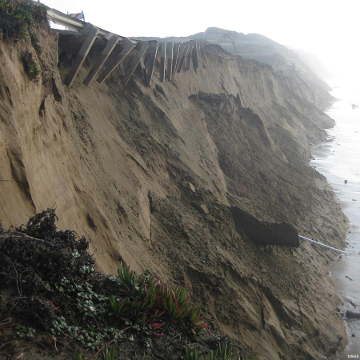Coastal erosion and Public Archaeology in Brittany, France
Coastal archaeological sites are facing danger from violent storm surges and anthropogenic pressure. The threat is not new, but there is mounting evidence that climate change is causing an increase in the frequency and intensity of storm events, with more damaging consequences for such a vulnerable heritage. The ALeRT (Archéologie, Littoral et Réchauffement Terrestre) project, has brought together researchers involved in coastal archaeology with the aim to establish an interdisciplinary approach to coastal archaeological vulnerability, site monitoring and heritage management. The problem and need for an improved field data collection and data management procedures has led researchers to develop a web and a mobile application for administering users and adding field data. It reduces the time of data collection in the field and widens the perspectives of collaboration between researchers, heritage managers and the wider community. In this presentation, presenters focus on the results of the collaborative project in 2014 and 2015, when this citizen science was put to the test. Recent evidences of extreme weather impact on coastal archaeology have provoked a huge mobilization of the local population in Brittany and a growing interest of public archaeology initiatives. As a result of this mobilization, specific training in coastal archaeology has been developed for coastguards and local communities. The ‘Alert’ network is now constituted by thirty active members who cover almost the whole coast of the region and has been recently expanded through a partnership with the Conservatoire du Littoral, a public wildlife conservation organization.



